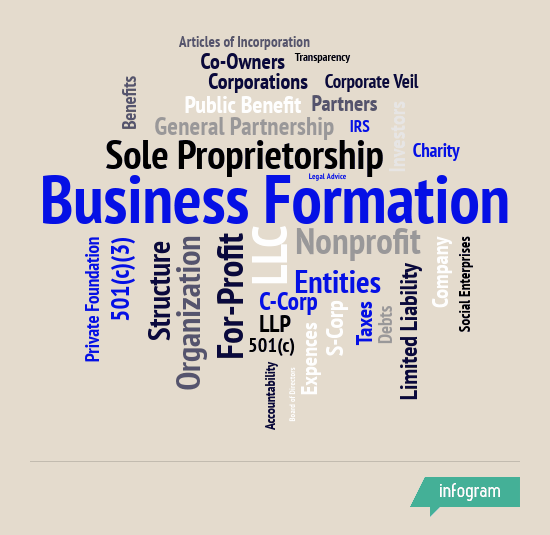Starting a business can be an exciting yet complex journey. One of the first steps is choosing the right business entity.
Business entity formation is crucial for your company’s legal and financial framework. It affects everything from taxes to personal liability. Whether you’re forming a sole proprietorship, partnership, LLC, or corporation, each type has distinct advantages and challenges. Understanding these options is vital for making an informed decision that aligns with your business goals.
This guide will help you navigate the different business entities, ensuring you make the best choice for your new venture. Let’s dive into the essentials of business entity formation and set your business on the path to success.

Credit: www.traverselegal.com
Introduction To Business Entity Formation
Business entity formation is key for entrepreneurs. It helps in defining the structure of a business. With the right entity, you can enjoy legal protections. It also influences tax obligations and financial benefits. Choosing the correct entity can save money.
There are several types of entities. Examples include sole proprietorships, partnerships, LLCs, and corporations. Each type has its own advantages. Proper formation ensures compliance with laws. It also establishes credibility with clients and investors. A well-formed entity can attract more business opportunities.
Start your business right with a solid foundation. Understand your options. Make informed decisions. Protect your investment and future. For more information on forming a business entity, visit Quality Company Formations.
Choosing The Right Business Structure
A Sole Proprietorship is the simplest form. Only one person owns the business. Taxes are easy to handle. A Partnership involves two or more people. They share profits and losses. A Corporation is more complex. It offers limited liability to its owners. An LLC combines features of partnerships and corporations. It provides flexibility and limited liability.
Liability protection is crucial. Some structures offer more protection. Tax implications vary by structure. Consider how profits will be taxed. Management structure is another factor. Who will make decisions? Future needs should be considered. Will the business grow? Cost of formation matters too. Some structures are more expensive to set up.
Key Steps In Forming A Business Entity
Choosing a unique name is the first step. Check if the name is available. Search online databases and state registries. Make sure it is easy to spell and remember. Avoid names that are similar to existing businesses.
Once you have a name, register it with the state. You may need to file documents such as articles of incorporation. Registering makes your business legal and protects your name. The requirements vary by state, so check local laws.
Depending on your business type, you might need licenses or permits. These could be local, state, or federal. Check with local government offices. Ensure you have all required documents before starting operations.

Credit: starrlawfirm.com
Legal And Financial Considerations
Starting a business involves several legal requirements. You must register your business name and choose a legal structure. This could be a sole proprietorship, partnership, LLC, or corporation. Each structure has its own rules and regulations. Always ensure that your business complies with local, state, and federal laws. Consulting with a legal expert can help you navigate these requirements.
Effective tax management is crucial for business success. Different business entities have different tax obligations. LLCs and corporations often have more complex tax requirements. Keeping accurate financial records is essential. This helps in managing taxes and tracking business performance. Hiring a professional accountant can simplify this process. Regularly reviewing your finances ensures your business stays profitable.
Pros And Cons Of Different Business Entities
Sole proprietorships are simple to start. They are easy to manage. Owners keep all profits. No need to share with partners. Sole proprietors face unlimited liability. Personal assets are at risk. Funding can be tough. Banks may hesitate to lend. Business ends if the owner dies.
Partnerships are easy to form. Two or more people share tasks. Partners pool resources. More capital is available. Decision-making can be faster. Disputes may arise between partners. Profits are shared. Unlimited liability is a risk. Personal assets are at stake. Partnerships can end with a partner’s exit.
Corporations offer limited liability. Personal assets are protected. They can raise capital easily. Corporations have a complex structure. They face double taxation. LLCs combine best features. They offer limited liability. They avoid double taxation. LLCs are flexible. Owners can manage or hire managers. Both entities require more paperwork. They have higher costs.

Credit: morgdevo.com
Frequently Asked Questions
What Is Business Entity Formation?
Business entity formation is the process of legally creating a business structure. It involves registering with the state and obtaining necessary licenses. This step defines the legal and tax responsibilities of the business. Popular types include sole proprietorships, partnerships, LLCs, and corporations.
What Are The 4 Steps To Creating An Entity?
1. Identify the entity type. 2. Gather necessary information. 3. Register the entity with relevant authorities. 4. Establish operational procedures.
What Are Business Entity Forms?
Business entity forms include sole proprietorships, partnerships, corporations, and limited liability companies. Each offers different legal and tax benefits.
Is A Business Entity The Same As An Llc?
A business entity refers to any organization formed for business purposes. An LLC is a type of business entity.
Conclusion
Choosing the right business entity is a crucial step. It impacts taxes, liability, and operations. Quality Company Formations can simplify this process. They offer various customizable options to suit your needs. Make informed decisions to set a strong foundation. Start your journey with confidence and expertise.
Visit the BrandlessCBD website for more details.

